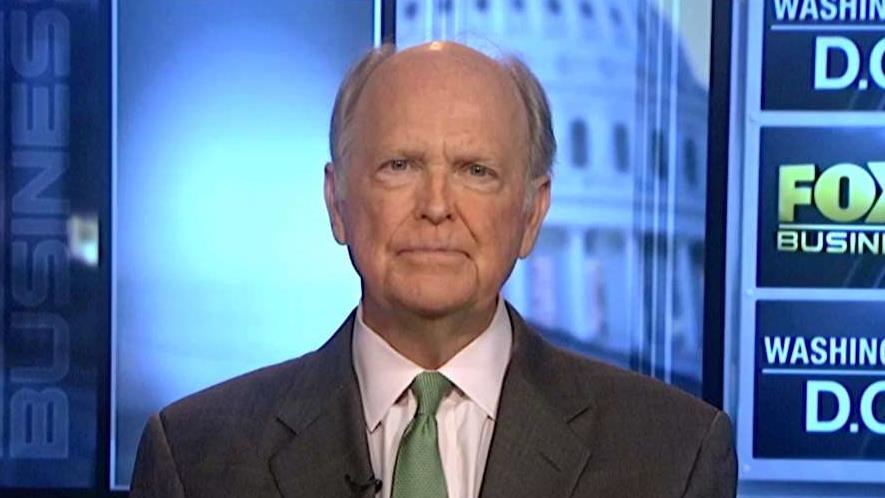Fmr. Philly Fed President Plosser Joins Chorus Calling for Higher Interest Rates
Former Philadelphia Federal Reserve President Charles Plosser has joined a growing chorus calling for the U.S. central bank to raise short-term interest rates.
In an interview on the FOX Business Network’s Cavuto: Coast-to-Coast, Plosser said he thinks the Fed has waited too long to move rates higher after its last hike in December.
“I’m a bit concerned that they’re behind the curve,” he said. “My concern is the Fed really doesn’t have a clear-cut strategy about how they want to go about doing this, and that’s not good either because that leaves confusion with the markets. They don’t know what the Fed’s going to do and the Fed doesn’t know what it’s going to do.”
At the conclusion of its two-day policy meeting this month, the central bank said the case for higher rates was increasing, though members opted to continue to wait for signs of a stronger economy as it grows closer to meeting the dual objectives of full employment and price stability.
Federal funds futures, a tool used to predict market expectations for changes in monetary policy, show a 61.6% chance of a rate hike by the Fed’s December meeting.
As Plosser pointed out, the divide is growing between Federal Open Market Committee members who want to keep rates on hold and those who want to raise. But, he said that should be a positive sign for the markets that there’s a real debate going on inside the central bank.
“At this time in an economic cycle where you’re changing direction, trying to raise rates, it’s not unusual you’ll have a lot of different options,” he said. “[Members] are all smart with their own views.”
However, he said he worries about the communication strategy that has allowed a range of opinions from many different voting members to cause significant momentum swings in the U.S. equity market. Based on his experience within the Fed, he said the FOMC does worry about the messages it conveys.
Still, with two meetings left for the remainder of the year and a hefty dose of uncertainty in the market, there’s still plenty of room for public opinion and debate.
“When times are uncertain, you get disagreements, but I think that’s healthy because it tells the public what the debates are inside the FOMC and that’s useful,” he said.




















